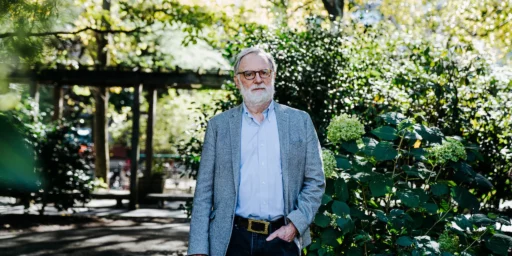The Past is a Foreign Economy
Brad DeLong reflects on how radically the world economy has changed in the last century or so:
What did the world look like in the last generation of the nineteenth century? It was a much emptier world: 1.2 to 1.5B people instead of our 6.4B. It was a much poorer world–of the 1.2B people in 1870 perhaps 1.0B lived like our preindustrial ancestors because they were our pre-industrial ancestors. It was a much less technologically-advanced world: the technological-industrial frontiers of that age were the oil well, the internal combustion engine and the electric light. Nevertheless, six processes were ongoing–not, from out perspective, in full swing but definitely ongoing–that were changing the world: industrialization, urbanization, globalization, marketization, colonization, and democratization.
Daniel Ben-Ami sounds a similar note:
Imagine an egalitarian world in which all food is organic and local, the air is free of industrial pollution, and vigorous physical exertion is guaranteed. Sound idyllic?
But hold on… Life expectancy is 30 at most; many children die at or soon after birth; life is constantly lived on the edge of starvation; there are no doctors or dentists or modern toilets. If it is egalitarian it is because everyone is dirt poor, and there is no industrial pollution because there are no factories. Food is organic because there are no pesticides or high technology farming methods. As a result, producing food means long hours of back-breaking physical work which may end up yielding little.
There is — or at least was — such a place. It is called the past. And few of us, it seems, recognise the enormous benefits to humanity of escaping from it. On the contrary, there is a pervasive culture of complaint about the perils of affluence and a common tendency to romanticise the simple life.
Both via Peter Suderman





A few additions to the differences between then and now
In the federal census for 1900 90% of Americans listed their occupations as farmers. Now 2% of Americans are farmers. Only 10% are even rural—most Americans live in cities or in the urbanized areas around cities.
89% of American adults were literate in 1900; now 97% are. In 1900 very few women worked outside the home; as of 2000 77% of women did.
One thing to remember: people change from doing A to doing B because they think they’ll be better off doing B. They can be mistaken. They can be mistaken a lot of the time. But probably not all of the time. Should give one pause in longing for the wonderful circumstances of some imagined past.
Just imagine the year 2525,”if man is still alive”. Will we then look aghast at our ancestors who were required to live a lonely existence, actually producing their own thoughts and decisions in a stark world of isolation called privacy.A world without soylent wafers where food had to be processed and had imperfect nutrition. A strange world where people had to be exposed to sunlight and even cities had terrifying areas known as “outdoors”.
Will our children look back horrified at a misguided “non-globalized” past where the people actually embraced “diversity” because conformity was not a simple matter of implants and programming,finally making the world a safe place to live, and completely democratic.
They will each know,to the exact same degree, just how fortunate they were not to have been subjected to the 21st century.
I would argue that the world has never been egalitarian, there have always been haves and have nots. And the fact that modern medicine has given us much longer life spans does not mean that organic/local food & the absence of pollution are bad things.
We should embrace the benefits of modern technology while seeking to mitigate its negative aspects, such as pollution.
For Ben-Ami to argue that he is somehow one of the “few” who recognize the benefits of modern technology sounds like something one would expect to see in a freshman term paper.